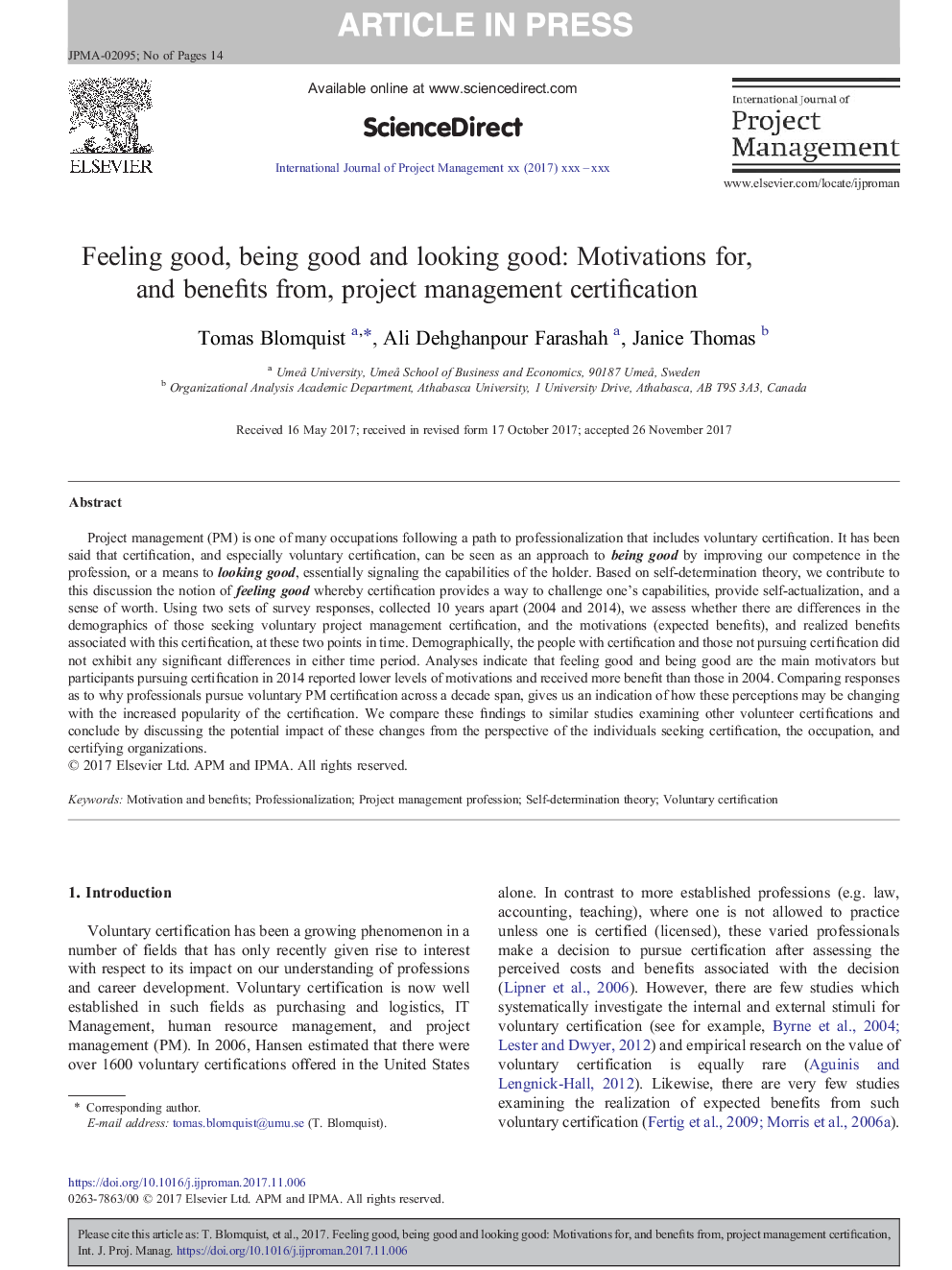| Article ID | Journal | Published Year | Pages | File Type |
|---|---|---|---|---|
| 6748037 | International Journal of Project Management | 2018 | 14 Pages |
Abstract
Project management (PM) is one of many occupations following a path to professionalization that includes voluntary certification. It has been said that certification, and especially voluntary certification, can be seen as an approach to being good by improving our competence in the profession, or a means to looking good, essentially signaling the capabilities of the holder. Based on self-determination theory, we contribute to this discussion the notion of feeling good whereby certification provides a way to challenge one's capabilities, provide self-actualization, and a sense of worth. Using two sets of survey responses, collected 10Â years apart (2004 and 2014), we assess whether there are differences in the demographics of those seeking voluntary project management certification, and the motivations (expected benefits), and realized benefits associated with this certification, at these two points in time. Demographically, the people with certification and those not pursuing certification did not exhibit any significant differences in either time period. Analyses indicate that feeling good and being good are the main motivators but participants pursuing certification in 2014 reported lower levels of motivations and received more benefit than those in 2004. Comparing responses as to why professionals pursue voluntary PM certification across a decade span, gives us an indication of how these perceptions may be changing with the increased popularity of the certification. We compare these findings to similar studies examining other volunteer certifications and conclude by discussing the potential impact of these changes from the perspective of the individuals seeking certification, the occupation, and certifying organizations.
Related Topics
Physical Sciences and Engineering
Engineering
Civil and Structural Engineering
Authors
Tomas Blomquist, Ali Dehghanpour Farashah, Janice Thomas,
